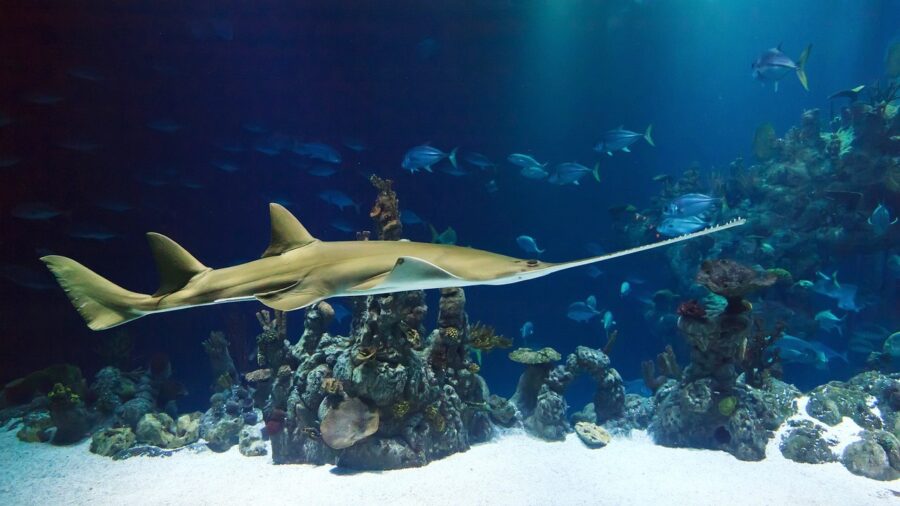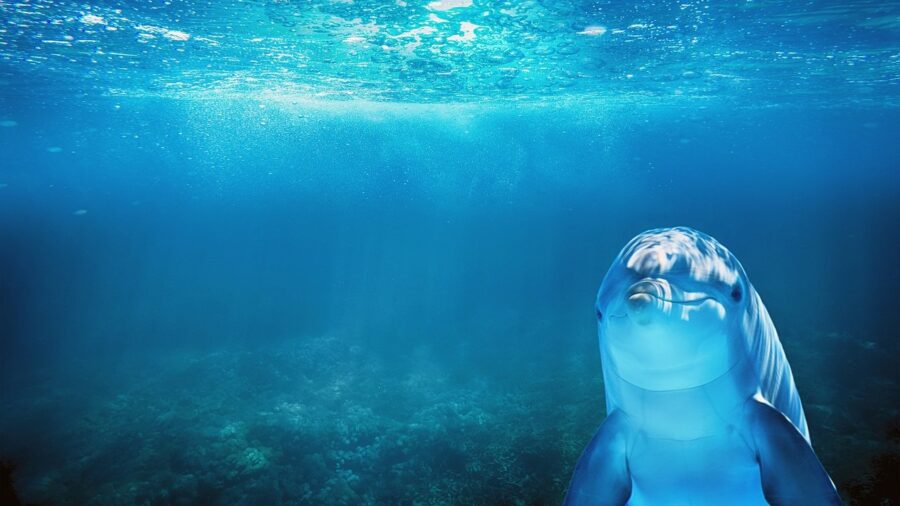The Ocean Is Boiling Animals Alive

For the past ten days, the lifeless bodies of pink river dolphins have been found floating in Brazil’s Lake Tefe. Over 150 of these endangered ocean creatures have perished, leaving scientists and conservationists concerned. While the exact cause remains unknown, experts believe drought, extreme heat linked to climate change, and the El Nino phenomenon are the likely culprits.
The water temperature in Lake Tefe has skyrocketed to a staggering 102 degrees Fahrenheit, a shocking 59 degrees above the typical range for a body of water in the Amazon. Claudia Sacramento, head of environmental emergencies at the state-run Chico Mendes Institute for Biodiversity Conservation, explains that dolphins lose oxygen when an ocean or lake becomes exceptionally warm.
“We are preparing for the worst. If something bad happens to the dolphins, we’ll be next.”
Adriana Colosio, veterinarian at the Humpback Whale Institute
The rising ocean and lake temperatures force their cellular metabolism to spike, leading to suffocation due to a lack of oxygen. “It is common for communities to come across one or two dead dolphins at some point,” Sacramento told The Washington Post. “Usually, they’re just old or sick. But we had never seen anything like this before.”
The catastrophe in Lake Tefe appears to be unparalleled in the region. As such, scientists are also considering that a biotoxin or virus could be responsible for the dolphin tragedy, as hundreds of fish have recently died from unknown causes in the Amazon. However, the prevailing theory is that ocean overheating and drought are the primary drivers behind this environmental crisis.

With El Nino and record-breaking heat waves projected to persist in Brazil and other parts of South America in the coming months, there is a growing fear that more dolphins may meet a tragic end. Adriana Colosio, a veterinarian from the Humpback Whale Institute involved in examining dolphin carcasses in Tefe, states, “We are preparing for the worst. If something bad happens to the dolphins, we’ll be next.”
This devastating Lake Tefe event is a stark reminder of the profound impacts of climate change and human activity on our planet’s delicate ecosystems.
To gather crucial insights into the ocean heating situation, at least ten veterinarians have volunteered to conduct autopsies and collect samples. These samples will be sent to specialized laboratories in Sao Paulo and Rio de Janeiro for analysis. However, the endeavor faces significant obstacles as finding dolphin carcasses in a state suitable for sampling is proving difficult.
In the warm ocean and lake waters, the dolphin remains decompose rapidly. Another challenge is preserving these samples at freezing temperatures during transportation to the distant laboratories, given Tefe’s remote location and logistical constraints. Two teams of 48 individuals are actively investigating the crisis.
One team monitors and rehabilitates the surviving dolphins, while the other retrieves the lifeless bodies. The Mamiraua Institute for Sustainable Development has even rented a house by the lake to aid in the rescue efforts. The dire ocean heating situation has raised alarms not just among Brazilians but also in neighboring countries.
Mariana Paschoalini Frias, a conservation specialist at the World Wildlife Fund in Brazil, fears that Lake Tefe’s dolphin population could decline by as much as 10 percent if the deaths persist. She asserts that the population is at risk if these losses continue. Sadly, this devastating event is not isolated. Heat and historic drought are wreaking havoc across South America and the surrounding ocean.
The water temperature in Lake Tefe has skyrocketed to a staggering 102 degrees Fahrenheit, a shocking 59 degrees above the typical range for a body of water in the Amazon.
In Venezuela and Colombia, scientists are closely monitoring the rivers of the Orinoco and Amazon basins. Lake Titicaca, the world’s highest navigable lake, is dwindling due to a lack of rain, while sea wolves in Ecuador are starving due to warm surface ocean waters killing their food supply. In Mexico, at least 30 manatees have perished in the Pantanos de Centla Nature Reserve in 2023.
This devastating Lake Tefe event is a stark reminder of the profound impacts of climate change and human activity on our planet’s delicate ecosystems. As the Amazon and its unique inhabitants face an uncertain future, we must recognize the urgent need for conservation and take meaningful action.











